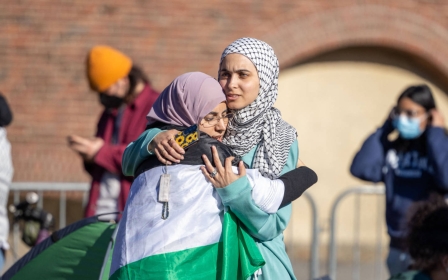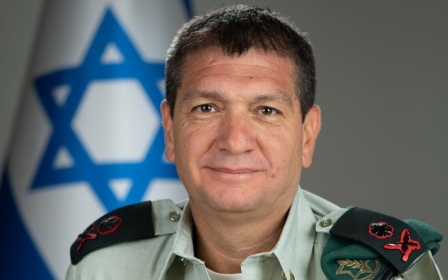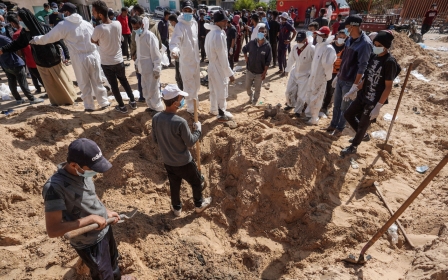War on Gaza: Hamas hits out at 'false' accusations by US that it 'moved goalposts' on ceasefire

Hamas rejected what it called "false accusations" made by the US that it "moved the goalposts" and changed its demands in ceasefire negotiations to bring an end to the war on Gaza.
During a daily press briefing on Monday, US State Department spokesperson Matthew Miller claimed the Palestinian group had changed the terms of a potential ceasefire deal in the hopes of provoking a "regional war".
"There are demands that they have made. Israel has moved some way to meeting those demands, and Hamas has then changed their demands," said Miller.
Stay informed with MEE's newsletters
Sign up to get the latest alerts, insights and analysis, starting with Turkey Unpacked
"And so it certainly does seem like Hamas is more interested in a full-scale regional war, that they were watching the events of the past few weeks and making the determination that they might get the full-scale regional war they were hoping for, and so have not agreed to a very significant proposal that was on the table."
The state department has not elaborated, however, on how Hamas has shifted its negotiating position.
In a press release, Hamas said the American statement bore "no relation to reality" and accused Washington of being a "full partner in the war of extermination against our people".
The group added that its demands have been "clear from day one" and that Israeli Prime Minister Benjamin Netanyahu and his government are the ones obstructing the deal.
"The demands of Hamas and the resistance have been clear from day one, and they are the same as those presented last March and were welcomed by all parties and mediators," said the statement.
"The demands represent the national position of our people and their interests in the necessity of a permanent ceasefire, the withdrawal of the occupation forces, and the return of the displaced to their places of residence in all areas of the Gaza Strip, intensifying relief and starting reconstruction."
Months of subsequent diplomatic efforts have struggled due to wide gaps between Israel and Hamas, six months into the assault on Gaza which has left more than 34,000 people dead.
Qatar, along with the US and Egypt, has played a critical role in mediating between Israel and Hamas since the 7 October attack.
In November, Doha helped broker a temporary ceasefire during which Hamas released 81 Israeli captives in exchange for 240 Palestinians.
However, since then negotiations between Hamas and Israel have made little progress. A key sticking point appears to be Israel's reluctance to permanently end the conflict even after its hostages have been returned.
Hamas also wants a permanent end to the blockade that preceded its attack on Israel on 7 October.
Middle East Eye delivers independent and unrivalled coverage and analysis of the Middle East, North Africa and beyond. To learn more about republishing this content and the associated fees, please fill out this form. More about MEE can be found here.





